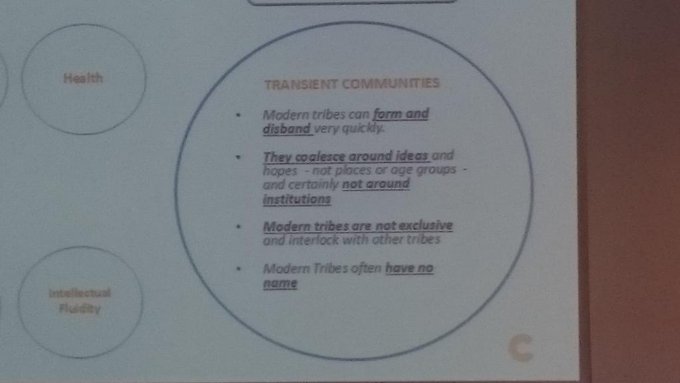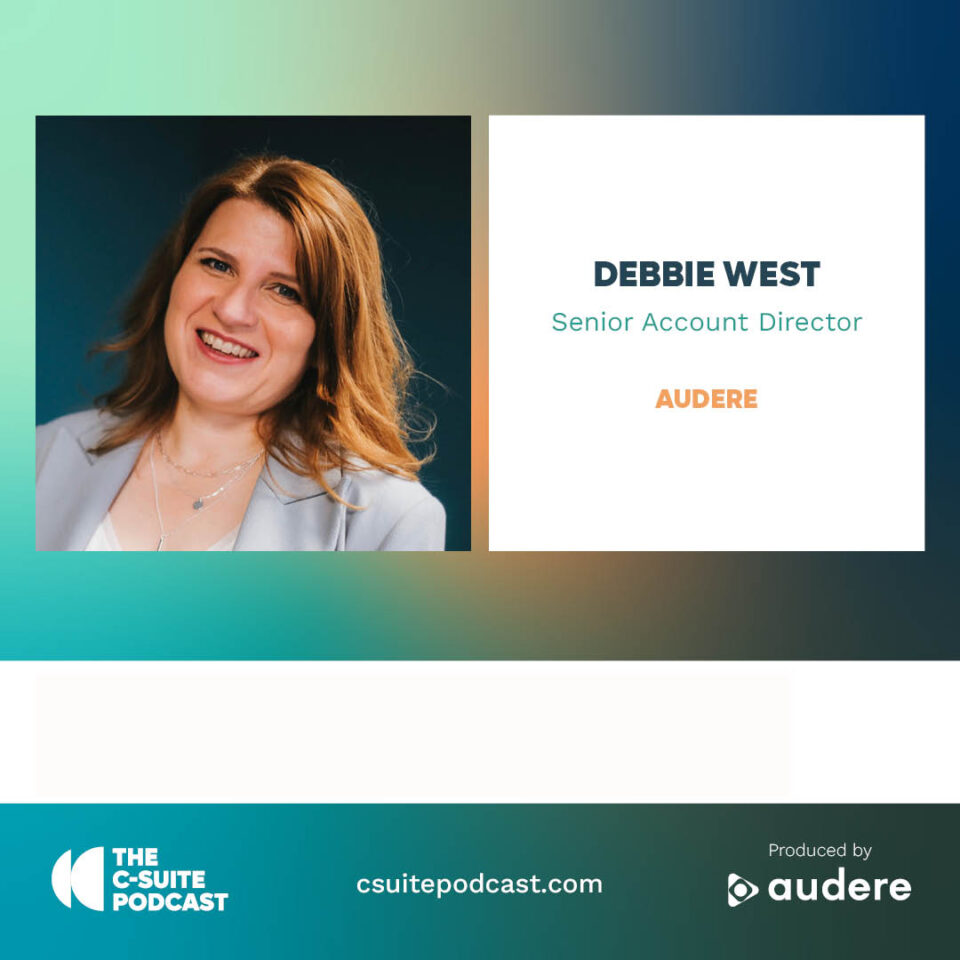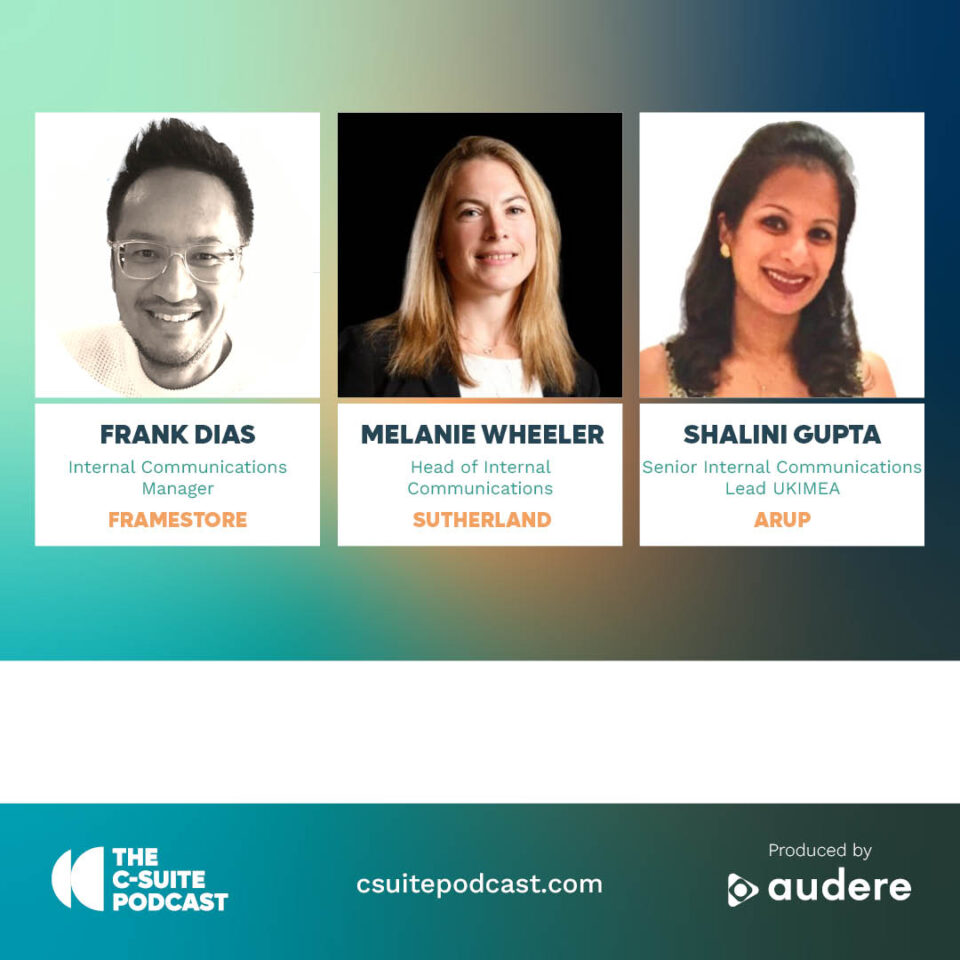That was an impressive talk by @mazennahawi at #ecs16 on the emergence of modern tribes. Putting the R back in PR.

PRCA members receive 10 CPD posts for listening to this podcast if they log it on the PRCA CPD programme.
Recorded at the European Communications Summit in Brussels.
Russell Goldsmith interviewed three speakers from the European Communications Summit. In part One, he spoke with Elaine Cameron who is a Futurist and Senior Director at Burson-Marsteller about Gender Balance in the Workplace.
Elaine has been tracking signals of change for eight years around women’s empowerment – politically, technologically and economically. She gave an overview of the trends that are driving gender balance in the workplace. For example, women now:
- control $20trillion worth of global spending power
- are rising entrepreneurs
- are much higher on the political agenda and have a higher political representation
- are slowly getting higher into managerial and leadership positions
She added that we have also seen landmark legislation being passed around the world on pay parity and transparency on pay and women’s paternity leave.
However, Elaine said that barriers still exist to women in the workplace due to a number of reasons including:
- cultural norms
- they still carry the greatest responsibility for family care (highlighted in a report by Frost & Sullivan) – compared with senior level men who are five times more likely to have a stay at home partner
- are under estimated in terms of the amount of business results they are driving
In the week before the conference, actress and activist Emma Watson had been interviewed discussing the #HeForShe campaign and her support for positive discrimination to address the imbalance for women. Elaine shares this opinion. She explained that we can’t wait 200 years to allow this to happen holistically over time, [according to a study undertaken by LeanIn.Org and McKinsey ‘At the rate of progress of the past three years, it will take more than 100 years for the upper reaches of US corporations to achieve gender parity’]. Elaine said that even Christine Lagarde, Managing Director of the International Monetary Fund, recently said that she doesn’t see how else we are going to achieve gender balance.
In her session, Elaine showed a really powerful video (below), produced for the ‘Inspiring the Future’ campaign, run by the charity, Education and Employers, that highlights the issue that gender stereotypes are formed at a very early age, between the ages of five and seven years old.
Elaine therefore believes it’s the responsibility of the parents to bring up their children in a way that is gender neutral.
Burson-Marsteller has launched their Advantage Women campaign, which is a global offering focused on helping organizations take full advantage of the benefits associated with closing the gender gap and creating more opportunities for women to rise as leaders.
In Part 2, starting at 6min33s, Russell was joined by Jeremie Guillerme, Lead Corporate reputation consultant at Stakeholder communications agency Black Sun.
Jeremie was at the event talking about a report he’d just released, Navigating Social Acceptance, which looks at how and when organisations are recognised as meaningful contributors to society.
He explained that Social Acceptance has broad support from a range of stakeholders including the General Public and that in producing the report, Black Sun had tried to break down the various steps an organisation can take to unlock Social Acceptance, which include:
- understanding your stakeholders
- aligning your business to your stakeholders in the way you speak and act the way you
- engaging those stakeholders on the progress you are meeting those needs and expectations
The findings of the report, however, showed that there are a number of gaps that remain in the above. For example, approximately 86% companies they researched have a clear knowledge of who their key stakeholders are, but that very few actually collect their feedback, or do anything with that knowledge to the benefit of their business.
Jeremie’s two key tips to achieve Social Acceptance are to:
- Run stakeholder consultations
- Always follow up on your commitments
On that second of the above tips, Jeremie said that too many organisations are keen to consult and listen to stakeholders, having asked them to input on their strategy and communications, but then let them down in the delivery. You have to remember that having asked those stakeholders for input, you are accountable to them, and so have to let them know what you have done with their feedback.
Part Three – starting at 13min51s
Russell spoke to Mazen Nahawi, CEO of Media Intelligence Agency, CARMA. Mazen had presented a session at the conference on the topic of Tribal Relations, which looked at how understanding of trust will change amidst the failures of political communications. This was quite a timely talk following the result of the Brexit referendum in the UK and the backtracking that followed from both sides of the argument.
Mazen’s talk was about how people are coming together around ideas, interests and passions rather than gender, ethnicity or location. They can be transnational and multicultural, but the key aim is that they want to achieve a particular goal, whether political or social. As well as what was going on in the UK politically, he said it was also quite pertinent in the current US elections as well as what has happened in the Arab Spring in the Middle East and so it’s very much a global phenomenon. He added that it’s therefore important to understand what brings people together and what drives them, which is what CARMA are trying to achieve with their research.
Mazen explained that CARMA are trying to take measurement to a different level with their Tribal Relations research. He said that traditionally, the [PR] industry has focussed on clip counts, advertising value equivalency (AVE), etc., but his company believes the csuite requires data that is much more in-depth and needs to have a historical, business and psychological context, rather than just media analysis and opinion data. He believes that by blending it all together, you get a holistic view and a better understanding of the people you are trying to serve.
To continue the discussion on twitter, please use the #csuitepodcast and to get involved, contact the show using the form on this site.




